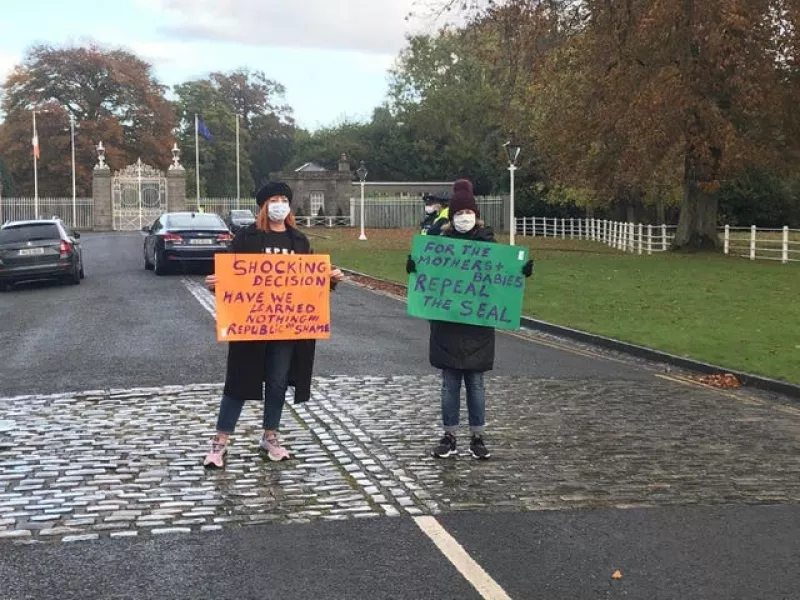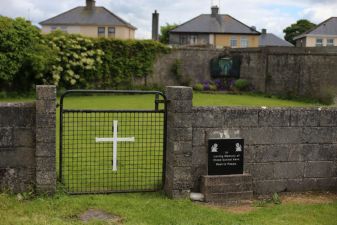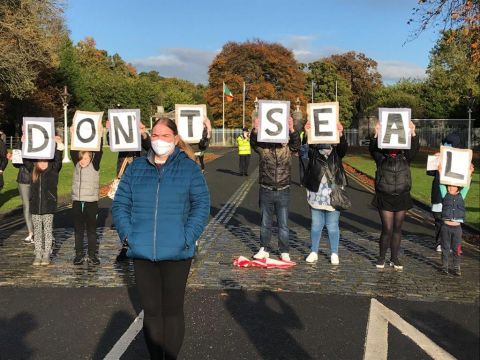Micheál Martin said he wants “openness, transparency and honesty” and to “shed a light” on the abuse.
He also said the Government plans to create a centre where all the material related to inquiries into the “dark chapters” of Ireland’s past can be housed.
His comments come after the Government vowed on Wednesday to engage with the office of the Data Protection Commissioner to ensure survivors have access to their records.
Controversial legislation passed this week allows a database created by the Mother and Baby Homes Commission of Investigation to be sent to child and family agency Tusla. Under a 2004 Act, the documents would be sealed for 30 years.
The new Bill caused massive public outcry from survivors, campaigners, opposition parties and the general public.
The Government is said to have been taken aback by the strength of feeling on the issue, and at a lengthy Cabinet meeting on Wednesday it was decided to address the concerns.
Redactions
Part of a suite of measures is to ensure survivors can access their records – one of the key concerns about the Bill.
Speaking at Government Buildings on Thursday, the Fianna Fáil leader said “genuine motivation” had been behind the Government passing legislation relating to the mother and baby homes inquiry.
No government wants to bury anything in the modern era.
Advertisement
He added: “No government wants to bury anything in the modern era. We’ve no agenda to bury anything, why would we?
“There wasn’t an attempt to close anything down or shut anything down. That was not the motivation behind the legislation, yet there was a whole social media campaign alleging that. That was not correct.”
He said the records would have been destroyed if the legislation had not been passed before the end of October.
“There would have been too many redactions,” he said. “They would be rendered useless if legislation was not introduced to make sure they could be preserved and protected. That was the motivation.”
Mr Martin added the primary focus must now be on the survivors.
“It was a terrible chapter in our lives,” he said, adding that until the 1980s and even later young women were still being sent to the institutions.

“I can’t comprehend that,” Mr Martin said. “It was very cruel and it’s important we had a comprehensive inquiry into all of this.”
He said a centre to house the documents and information relating to industrial schools, the Magdalene Laundries and the Mother and Baby Homes would ensure the documents are properly archived and made available to those affected.
“It wouldn’t just be an archive centre, it would be a centre that would tell a story,” he said, adding it is important future generations are “under no illusions” about what happened.
The Government had previously argued that under the 2004 legislation around commissions of inquiry, the records must be sealed for 30 years.

The Data Protection Commissioner had disputed this, saying there could not be a “blanket” ban on access to records, which should instead be determined by EU data privacy law the General Data Protection Regulation.
The final report of the Mother and Baby Homes Commission of Investigation, which is due for completion on Friday, will be published as soon as possible after it is received by Children’s Minister Roderic O’Gorman.
The report will be immediately referred to the attorney general for legal advice as to whether it might prejudice any criminal proceedings that are pending or in progress.







